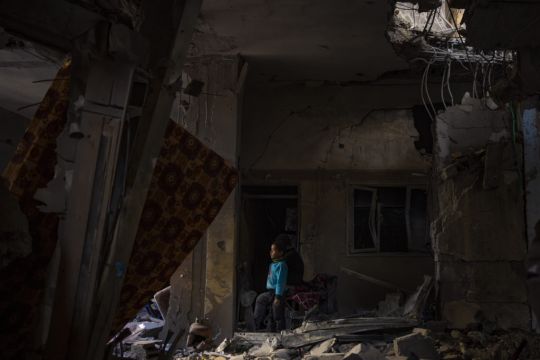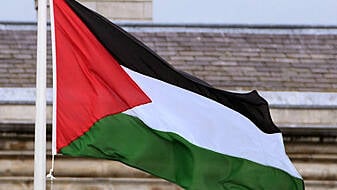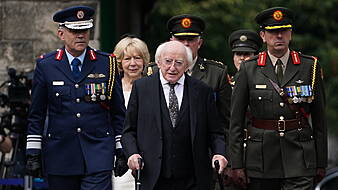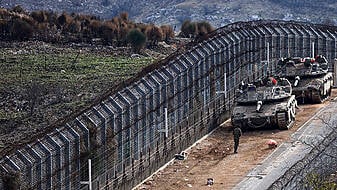Israeli air strikes killed more than a dozen people overnight and into Thursday in Rafah in the Gaza Strip, hours after Israeli prime minister Binyamin Netanyahu rejected Hamas’s ceasefire terms and vowed to expand the offensive into the southern Gaza town.
More than half of the strip’s population has fled to Rafah, on the mostly sealed border with Egypt, which is also the main entry point for humanitarian aid.
Egypt has warned that any ground operation there or mass displacement across the border would undermine its four-decade-old peace treaty with Israel.
The overnight strikes killed at least 13 people, including two women and five children, according to the Kuwaiti Hospital, which received the bodies.
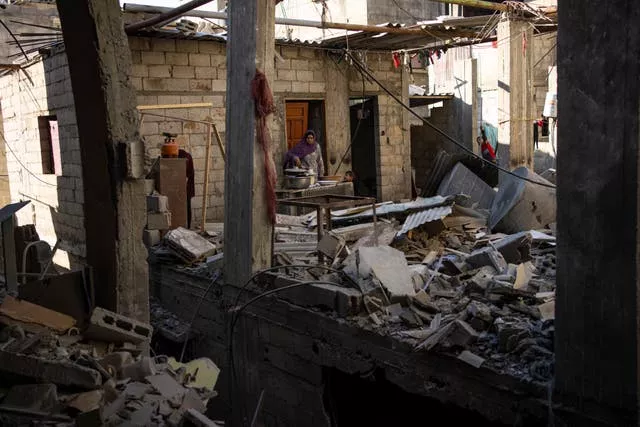
At the scene of one of the strikes, residents used their mobile phone torches as they dug through the rubble with pickaxes and their bare hands.
“I wish we could collect their whole bodies instead of just pieces,” said Mohammed Abu Habib, a neighbour who witnessed the strike.
Israel’s four-month-old air and ground offensive – among the most destructive in recent history – has killed more than 27,000 Palestinians, driven most people from their homes and pushed a quarter of the population towards starvation.
Mr Netanyahu has said the offensive will continue and expand until “total victory” over Hamas, which started the war by launching a wide-ranging attack into southern Israel on October 7th in which militants killed some 1,200 people, mostly civilians, and took around 250 hostage.
Israel has also vowed to bring back the more than 100 captives still held by Hamas after most of the rest were freed during a ceasefire in November in exchange for the release of Palestinians imprisoned by Israel.
But both of those goals appear increasingly elusive, as Hamas re-emerges in parts of northern Gaza, which was the first target of the offensive and suffered widespread destruction.
Israel has only rescued one hostage, while Hamas says several have been killed in air strikes or failed rescue missions.
Mr Netanyahu said preparations were under way to expand the offensive into Rafah, where hundreds of thousands of people who fled from other areas are crowded into squalid tent camps and overflowing UN-run shelters.

The Palestinian death toll from four months of war has already reached 27,840, according to the Health Ministry in the Hamas-run territory.
The ministry does not distinguish between civilians and combatants in its figures but says most of the dead have been women and children.
International aid organisations have warned that any major operation in Rafah would compound what is already a humanitarian catastrophe in the besieged coastal enclave.
“If they aren’t killed in the fighting, Palestinian children, women and men will be at risk of dying by starvation or disease.” said Bob Kitchen, of the International Rescue Committee.
“There will no longer be a single ‘safe’ area for Palestinians to go to.”
The United States, Qatar and Egypt are trying to broker another ceasefire agreement to ensure the release of the remaining hostages.
But Hamas has demanded an end to the war, a full Israeli withdrawal from Gaza and the release of hundreds of Palestinian prisoners, including high-profile militants.
Mr Netanyahu rejected those demands as “delusional” on Tuesday and said Israel would never agree to any deal that leaves Hamas in partial or full control of the territory it has ruled since 2007.

But visiting US secretary of state Antony Blinken said an agreement was still possible and that negotiations would continue, the latest sign of a growing divide between the two close allies on the way forward.
A Hamas delegation arrived in Cairo on Thursday for more negotiations.
Mr Netanyahu is under mounting pressure from families of the hostages and the wider public to bring them home, even if it requires a deal with Hamas.
At least one senior Israeli official has acknowledged that saving the captives and destroying Hamas might be incompatible.
Hamas is still holding more than 130 hostages, but around 30 of them are believed to be dead, with the vast majority killed on October 7th.
The group is widely believed to be holding the captives in tunnels deep underground and using them as human shields for its top leaders.
